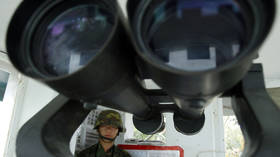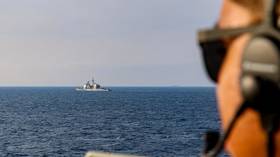Nearly half of Australians back military intervention in Taiwan – poll

Nearly half of the Australians surveyed in a recent poll said they would support sending military forces to “defend Taiwan” in the event of a Chinese attack, according to The Guardian, which obtained the polling results ahead of their release.
Of 1,068 Australians asked, 46% said they agreed or strongly agreed that their country should deploy troops “to help the United States defend Taiwan,” the outlet reported on Monday, citing a yet-to-be-published survey conducted by the US Studies Centre at the University of Sydney. The complete results are set to be released on Wednesday.
About one-quarter of respondents said they disagreed with the idea, 9% of which said they ‘strongly’ opposed military intervention – just half the percentage of those who ‘strongly’ supported it.
The polling indicates more enthusiastic support for such a policy among Australians than among American or Japanese citizens. In Japan, 35% of respondents said they would approve sending the Japanese military to Taiwan’s defense, while just 33% of Americans said they would support a US intervention. Similar percentages in both countries said they would disagree with a military deployment, suggesting opinion is more evenly divided there.
While more than half of the Australians surveyed (53%) also said they would approve of providing weapons to Taipei after a future attack by China, a significant proportion (38%) nonetheless agreed that Australia should play no role at all.
Though Washington long maintained a policy of ‘strategic ambiguity’ in regards to how it would respond to an assault by Beijing, refraining from outlining any particular reaction for decades, President Joe Biden has abandoned that approach, repeatedly declaring that the US will help defend Taipei should it come under attack from the mainland. Despite Biden’s comments, however, lower-level officials have insisted that US policy toward Taiwan and China has not changed.
Tensions between Beijing and the self-governing island have soared in recent months, with hostilities spiking in August after a high-profile visit to Taipei by US House Speaker Nancy Pelosi. China responded with a series of unprecedented military exercises around Taiwan’s waters and airspace, including a rehearsal for a full “blockade,” triggering vocal condemnation from Washington.
Taiwan, which officially refers to itself as the Republic of China, has been under self-rule since 1949, though it has never gained independence from the mainland and few countries recognize it as a sovereign nation. Beijing considers the island a part of its territory under the One-China policy, and while the People’s Republic has repeatedly stated its intent to peacefully reunite with Taiwan, it has not ruled out a military solution to the issue.













